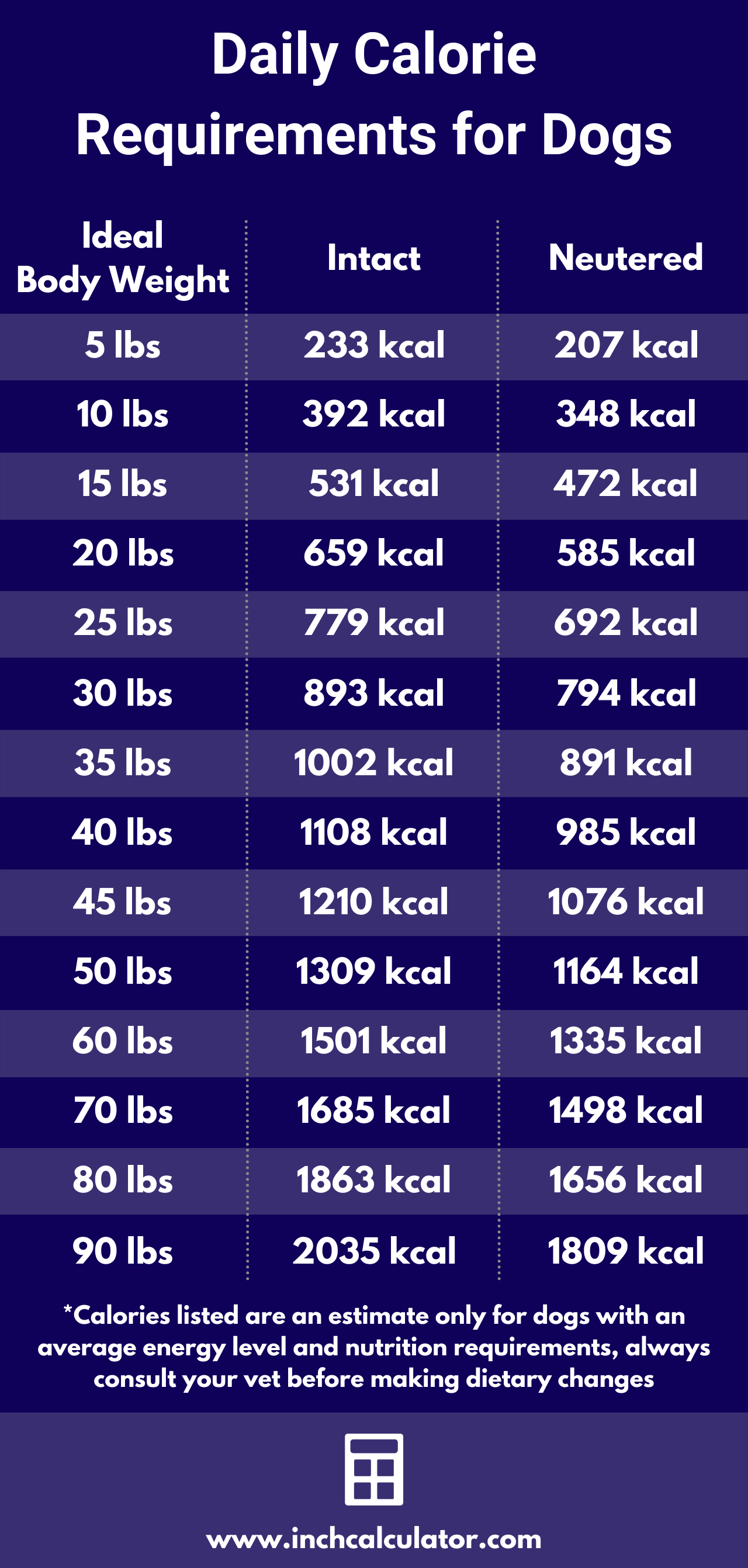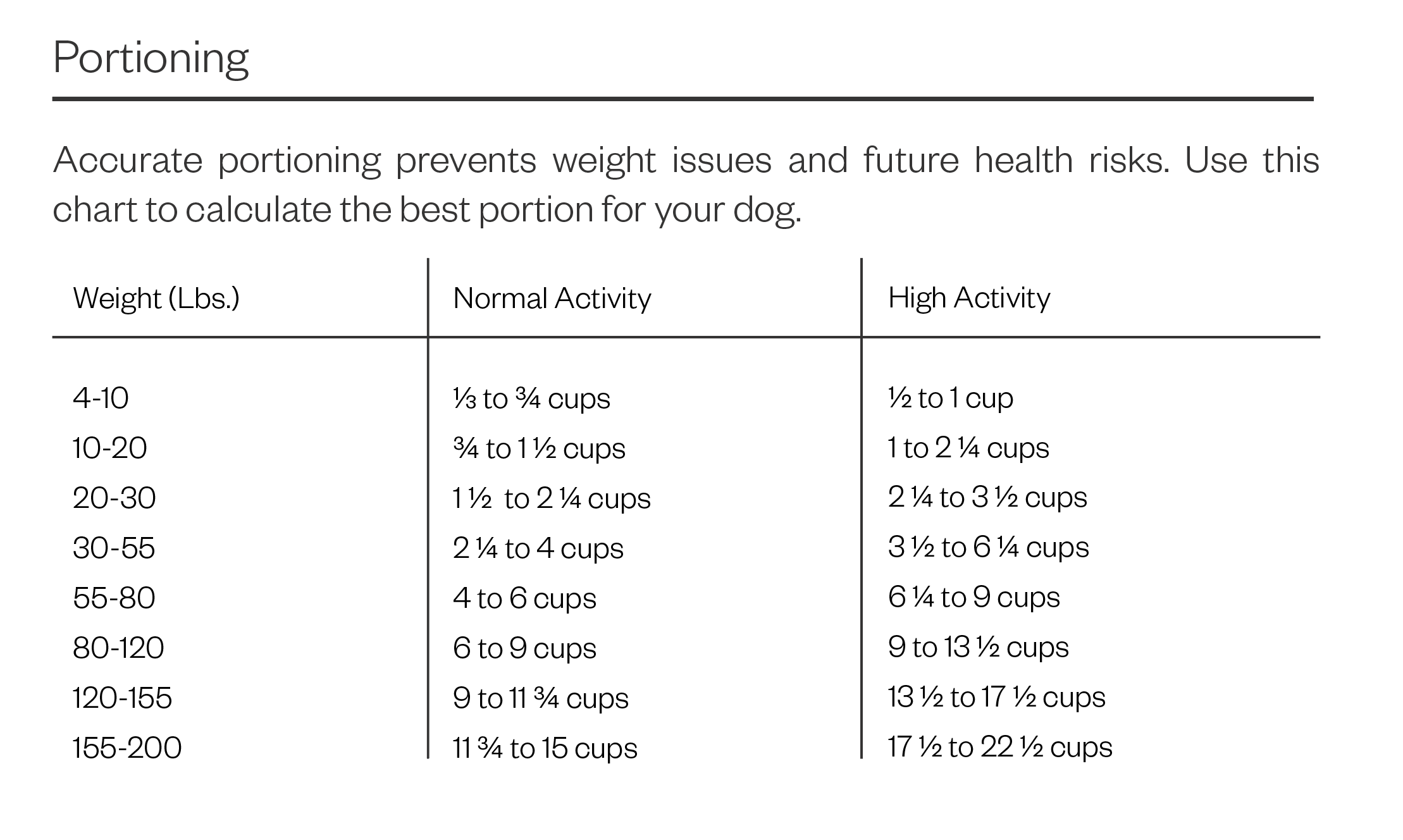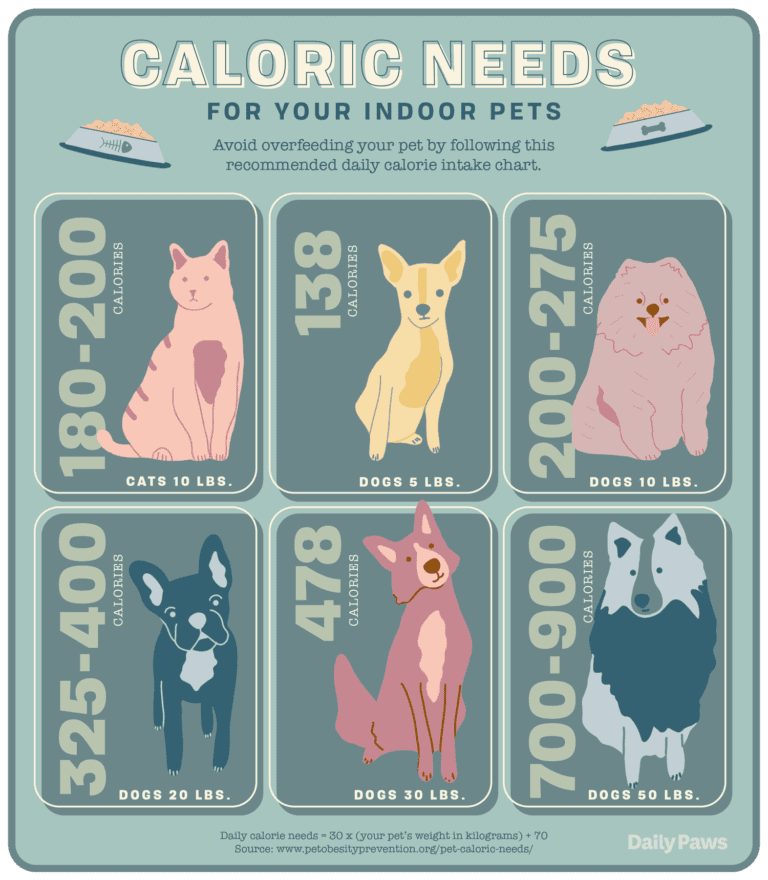Proper nutrition is crucial for maintaining your dog’s health and well-being. One important aspect of their diet is determining the correct number of calories they should consume each day. The right calorie intake is essential to prevent under or overfeeding, which can lead to weight-related health issues.

Credit: www.inchcalculator.com
Calculating Your Dog’s Calorie Needs
Calculating the correct calorie intake for your dog involves considering various factors such as their weight, age, activity level, and overall health condition. While there are general guidelines available, consulting with a veterinarian is always recommended for an accurate assessment. They will take your dog’s unique traits into account and create a customized feeding plan.

Credit: maevworld.com
Using a Dog Calorie Calculator
To get a rough estimate of your dog’s daily calorie needs, you can use a dog calorie calculator. These online tools take into consideration your dog’s weight, activity level, and life stage to generate a calorie recommendation. However, keep in mind that these calculators are not a substitute for professional advice, and consulting with a veterinarian is still recommended for an accurate assessment.
Dog Feeding Charts for Weight Management
Many pet food brands provide feeding charts to help dog owners manage their pet’s weight. These charts typically indicate the recommended daily calorie intake for different weight ranges. By determining your dog’s weight and following the corresponding feeding chart, you can ensure you are providing them with the appropriate amount of calories.
Here is an example of a feeding chart:
| Weight Range | Calories per Day |
|---|---|
| 5-10 lbs | 300-450 |
| 10-20 lbs | 450-650 |
| 20-30 lbs | 650-900 |
| 30-50 lbs | 900-1300 |
Keep in mind that these numbers are just a general guideline, and consulting with a veterinarian is still crucial for an accurate assessment of your dog’s calorie needs.
Monitoring Your Dog’s Weight
Monitoring your dog’s weight regularly is essential for ensuring they are receiving the correct amount of calories. If you notice your dog gaining weight, it may be necessary to adjust their calorie intake by reducing the portion size or switching to a low-calorie dog food. On the other hand, if your dog is losing weight or appears too thin, consulting with a veterinarian is crucial to determine the appropriate course of action.
Frequently Asked Questions For How Many Calories Should My Dog Eat Per Day?
How Many Calories Should My Dog Eat Chart?
The number of calories your dog should eat per day varies based on different factors, such as weight and activity level. To determine the right calorie intake for your dog, it is recommended to consult with your veterinarian or use a dog calorie calculator specific to your dog’s breed.
These resources will provide accurate information to ensure your dog consumes the appropriate amount of calories for weight management and overall health.
How Do I Calculate How Many Calories My Dog Needs?
To calculate your dog’s calorie needs, consider its weight and activity level, then use a formula or an online calculator. Regular vet check-ups are important for accurate calorie calculations.
How Much Should A Dog Eat Per Day By Weight?
A dog should eat about 25-30 calories per pound of body weight per day.
How Many Calories Are In 1 Cup Of Dry Dog Food?
One cup of dry dog food typically contains around 300-400 calories, depending on the brand and ingredients used.
Conclusion
Understanding your dog’s calorie needs is vital for their overall health and well-being. By considering factors such as their weight, age, activity level, and health condition, you can determine the appropriate calorie intake. Using dog calorie calculators and feeding charts can provide a general guideline, but consulting with a veterinarian is always recommended for an accurate assessment.

